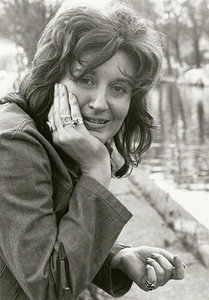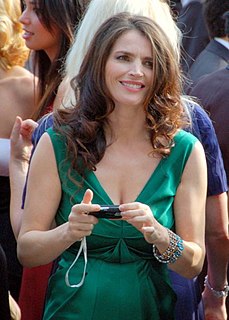A Quote by Ted Leo
I am the stereo-typical classic lapsed Catholic. Religious themes crop up in my songs sometimes as metaphors and other kinds of touchstones for getting at issues and "deeper issues," and all that. Right now, honestly, I think all religion is proving itself to be a NET negative on the human race. I recognize its valuable place in individual lives and many larger communities - I know the good that is done in its various names all over the world, but I don't believe in it anymore, and I see the negative aspects dragging us down at a much faster rate than the positive ones are bouying us up.
Quote Topics
Am
Anymore
Aspects
Believe
Catholic
Classic
Communities
Crop
Deeper
Don't Believe
Done
Down
Dragging
Faster
Getting
Good
Honestly
Human
Human Race
Individual
Issues
Itself
Kinds
Know
Larger
Lives
Many
Metaphors
Much
Names
Negative
Net
Now
Other
Over
Place
Positive
Proving
Race
Rate
Recognize
Religion
Religious
Right
Right Now
See
Sometimes
Songs
Stereo
Than
Themes
Think
Touchstones
Typical
Up
Us
Valuable
Various
World
Related Quotes
I think it's important for us to recognize that although historically black communities have been very progressive with respect to issues of race and with respect to struggles for racial equality, that does not necessarily translate into progressive positions on gender issues, progressive positions on issues of sexuality and in the latter 1990s we have to recognize the intersectionality, the interconnectedness of all of these institutions and attitudes.
When it comes to politics, we have an internal glass ceiling. We stand as good a chance as a man to win a political race, but women don't want to run at the same rate as men do. People point to the work-family balance issue, but I think it's much more than that. Many women don't have children, or have children who are no longer at home. There are some deeper psychological and emotional issues in play, like the fact that many of us feel like the embarrassment, humiliation and personal demonization in politics are simply more than our hearts can take. What stops us is fear.
I typically don't use the distinction 'positive' and 'negative' liberty, because negative sounds bad and positive sounds good, and I don't think that the terminology ought to prejudice us one way or the other. So I think the more descriptive term is 'liberty rights' versus 'welfare rights'. So, liberty rights are freedom-of-action type rights, and welfare rights are rights-to-stuff, of various kinds...And, property rights are not rights-to-stuff. I think that's one of the key misunderstandings about property. Property rights are the rights to liberty within your jurisdiction.
You have to separate the negative into two categories - half of it is sensible, constructive things that has made us better. But half of the negative online is negative for the sake of being negative, and it's important for us to remember it's okay they don't like us, and sometimes there's no point in engaging in that.
I would love it if we made more comparisons between current issues and issues of the past. Maybe we'd realize that sometimes 'current issues' and 'past issues' are one and the same. Our world's people still fight over natural resources, kill in the name of religion, occupy regions and give them up - just as we did 'so long ago.'
It is easy and dismally enervating to think of opposition as merely perverse or actually evil -- far more invigorating to see it as essential for honing the mind, and as a positive good in itself. For the day that moral issues cease to be fought over is the day the word human disappears from the race.
I think it's extremely valuable for us to be able to have a conversation in more than one dialect, speaking to more than one demographic here, finding our common ground, and having a very frank discussion about race, for one thing, which is where he is most hard-hitting, race, and the issues of human rights.
I think it is important that religious leaders of all kinds consciously attempt to distinguish between issues of natural law on which there is consensus among Catholic, Protestant, and Jew and those issues on which there must be a greater degree of tolerance of other peoples' opinions and of the diversity that is characteristic of American society.
Religion, if it is genuine, is so profoundly interwoven with individual thought and experience that it is no more exhaustible than consciousness itself. And fiction whose purpose is didactic is bad no matter whether the matter to be "taught" is Christianity or the world view of Ayn Rand. It seems often to be assumed by writers that religion is a pose, meant to deceive oneself or others, or that it is a bad patch on doubt or complexity. This is only convention, however. The writers I know have a much deeper engagement with the real issues of religion.
I do a certain amount of work in religious communities on these issues. It's not the central focus of my work but it is certainly an area where I have worked a lot. It has gotten much better over the years, especially over the last couple years. There wasn't a religious environmental movement 15 years ago, but there is now - in the Catholic community, the Jewish community, the mainline Protestant community, and in the Evangelical community.
Sometimes negative news does come out, but it is often exaggerated and manipulated to spread scandal. Journalists sometimes risk becoming ill from coprophilia and thus fomenting coprophagia: which is a sin that taints all men and women, that is, the tendency to focus on the negative rather than the positive aspects.
A more just world is possible. In most of the global issues, and also in so many of the development issues I'm involved in in our region, the young people that I am working with are seizing the tools at their disposal and trying to use them well, for issues far larger than their immediate personal benefit and concerns. That's what gives me hope.






































